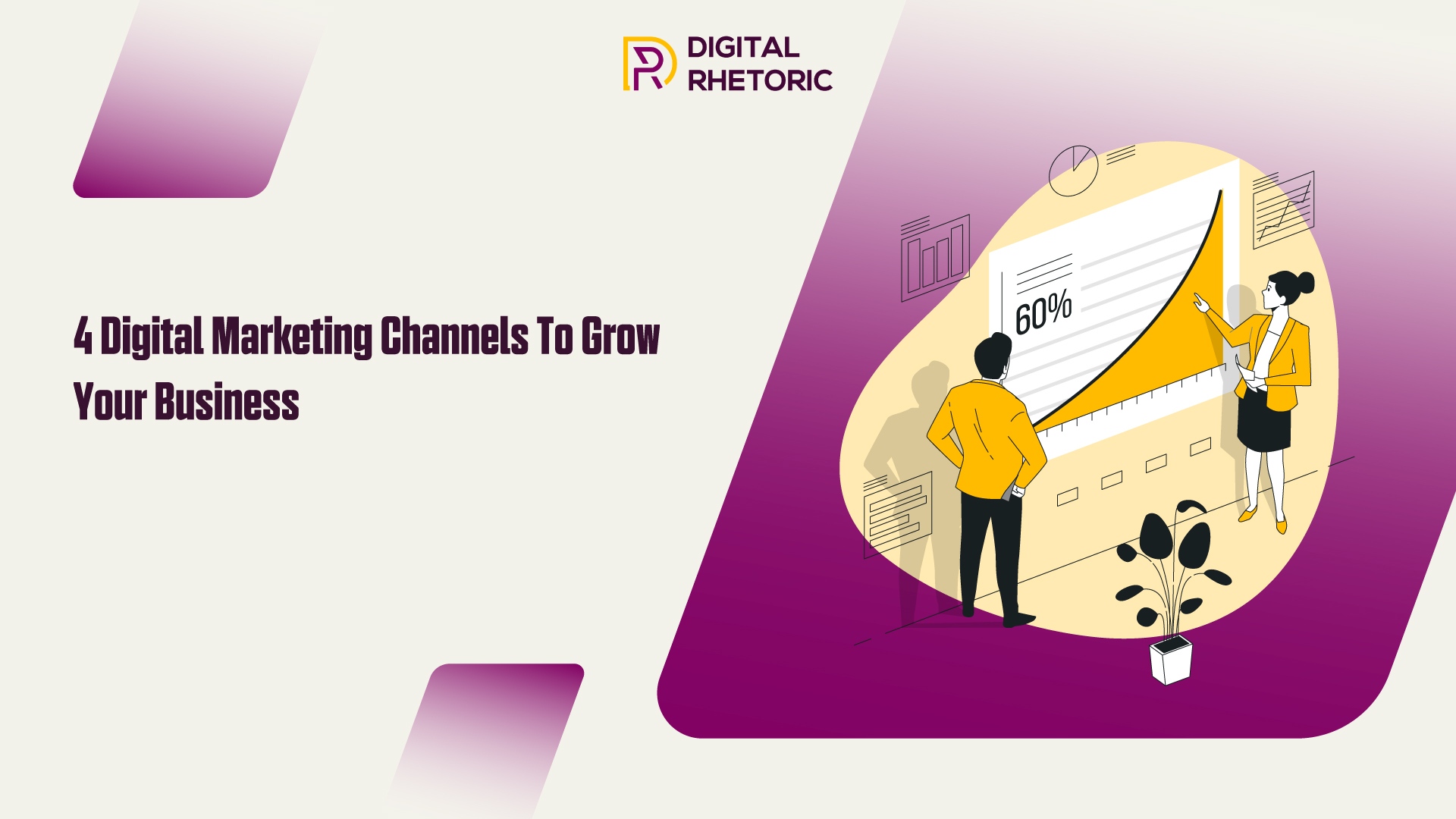
In today’s digital age, effective marketing is essential for business growth. Leveraging various digital marketing channels is the key to reaching a broader audience, boosting brand visibility, and ultimately driving revenue. This blog explores four dynamic digital marketing channels that can propel your business forward. From harnessing the power of social media platforms to optimizing your website for search engines, we’ll delve into strategies that can help you stay ahead in the competitive online landscape. Embrace the digital realm and discover how these channels can be the driving force behind your business’s success.
The Power of Social Media Marketing
Digital marketing channels play a pivotal role in boosting brand visibility and engagement, with social media platforms standing out as key players in this dynamic landscape. These platforms have revolutionized the way businesses connect with their audience, providing a direct line of communication and unprecedented exposure.
To maximize the impact of social media, crafting engaging content is essential. Businesses should focus on authenticity, creativity, and relevance to captivate their audience. Visual content like videos, infographics, and eye-catching images tends to perform exceptionally well. Consistency in posting schedules and interaction with followers also contribute to success.
Moreover, leveraging paid advertising across social media channels can exponentially expand reach. Platforms like Facebook, Instagram, and LinkedIn offer robust advertising options to target specific demographics and interests. This precision ensures that content reaches a larger and more relevant audience, ultimately driving brand visibility and growth.
In the world of digital marketing, understanding and harnessing these channels can be a game-changer for businesses seeking to thrive in the digital age.
Search Engine Optimization (SEO) for Website Traffic
In the realm of digital marketing channels, Search Engine Optimization (SEO) reigns supreme as a critical tool for enhancing website visibility. SEO is a multifaceted approach that involves both on-page and off-page techniques to improve a website’s rankings in search engine results.
On-page SEO focuses on optimizing individual web pages for search engines. This includes optimizing content, meta tags, headers, and ensuring a website’s structure is user-friendly. Properly executed on-page SEO ensures that search engines can easily understand and rank the content.
Off-page SEO, on the other hand, deals with factors outside the website itself. It involves activities like link building, social media marketing, and influencer outreach to establish the website’s authority and reputation. These efforts signal to search engines that the website is a reliable source of information.
Keyword research is at the heart of effective SEO and content optimization. Identifying the right keywords, those relevant to your business and frequently searched by users, is essential. Incorporating these keywords naturally into your content helps improve rankings and ensures that your content reaches the right audience.
By understanding the importance of SEO and mastering on-page and off-page techniques, coupled with strategic keyword research, businesses can significantly enhance their digital marketing efforts and increase their online visibility.
Email Marketing: Building Customer Relationships
Benefits of Email Marketing Campaigns:
- Cost-effective way to reach a large audience.
- Highly targeted and personalized content.
- Helps build brand loyalty and trust.
- Easy to track and measure campaign performance.
- Can drive website traffic and sales.
Strategies for Building and Segmenting Email Lists:
- Offer incentives like discounts or free resources to encourage sign-ups.
- Segment your list based on demographics, behavior, or preferences.
- Use double opt-in methods for quality leads.
- Regularly clean your list to remove inactive or invalid emails.
Crafting Compelling Email Content:
- Use attention-grabbing subject lines.
- Personalize emails with recipient names.
- Include clear and enticing CTAs.
- Use responsive design for mobile users.
- A/B test different elements for optimization.
These strategies can help you make the most of your email marketing efforts.
Pay-Per-Click (PPC) Advertising for Immediate Impact
PPC, or Pay-Per-Click, campaigns are a form of online advertising where advertisers pay a fee each time their ad is clicked. These campaigns are typically associated with search engines like Google, where advertisers bid on keywords relevant to their business. When users search for those keywords, the ads appear at the top or bottom of the search results. Advertisers are charged only when someone clicks on their ad, making PPC a cost-effective way to drive traffic and conversions.
Platforms like Google Ads have a profound impact on businesses by providing a powerful avenue for online advertising. Google Ads, the most widely used PPC platform, allows businesses to reach their target audience precisely. Through keyword targeting, location-based ads, and various ad formats, companies can showcase their products or services to potential customers at the right moment. This increases brand visibility, drives website traffic, and, when well-optimized, can lead to higher conversions. Google Ads offers a flexible budgeting system, making it accessible to both small businesses and large enterprises, ensuring a level playing field for online advertising.
Tips for creating effective PPC ads and campaigns.
| TIP | CAMPAIGN |
| Keyword Research | Conduct thorough keyword research to target relevant terms. |
| Compelling Ad Copy | Craft compelling, concise ad copy with a clear call to action. |
| Ad Extensions | Utilize ad extensions to provide additional information. |
| Landing Page Optimization | Ensure your landing pages are relevant and user-friendly. |
| A/B Testing | Continuously test ad variations to optimize performance. |
| Quality Score Improvement | Improve Quality Scores for better ad placement and cost. |
| Negative Keywords | Add negative keywords to filter out irrelevant traffic. |
| Ad Scheduling | Schedule ads to run during peak times for your audience. |
| Mobile Optimization | Optimize ads and landing pages for mobile users. |
| Budget Management | Carefully manage your budget to avoid overspending. |
| Conversion Tracking | Implement conversion tracking to measure campaign success. |
Implementing these tips can help you create PPC campaigns that deliver better results and a higher return on investment (ROI).
Conclusion
Digital marketing offers a multitude of channels and strategies to expand your business’s reach and influence. From harnessing the power of social media platforms to optimizing your website’s visibility through SEO, crafting compelling email campaigns, and running PPC ads effectively, the digital realm is teeming with opportunities. To explore real-world examples and dive deeper into these strategies, visit DigitalRhetoric.in. Don’t miss out on the chance to enhance your digital presence and achieve your business goals. Take action today and embrace the dynamic world of digital marketing!


